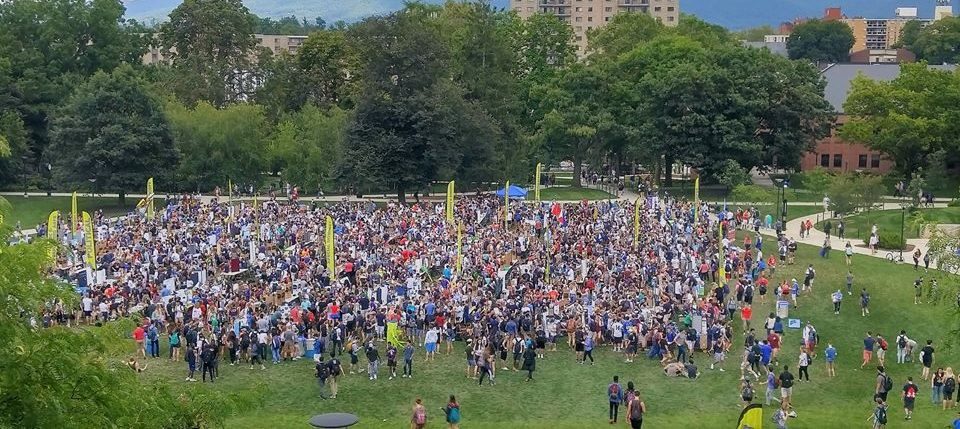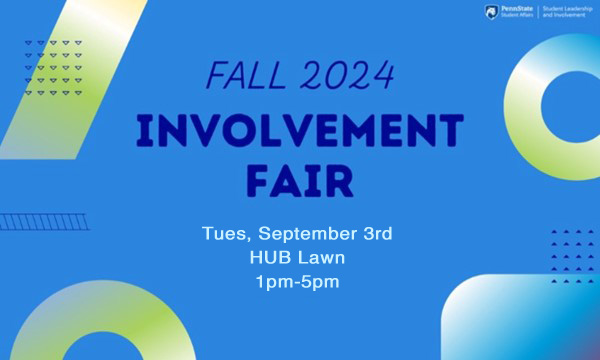
• Wednesdays at 7PM – HUB Lawn
• Fridays at 7PM – Pollock Lawn (behind Beaver Hall)
• Sundays at 8PM – Room 232 HUB


The Involvement Fair is one of the best opportunities to get involved in campus life at Penn State. The Penn State Karate Club will have members on site talk to visitors one-on-one about the club. PSKC will be on the HUB Lawn from 1:30 – 5PM.
Involvement in co-curricular experiences is one of the most important parts of having a successful college career! You’ll make friends, learn all about Penn State, and develop invaluable skills you will use in life beyond Penn State.
Join the Penn State Karate Club this fall!
https://studentaffairs.psu.edu/get-involved/student-organizations/involvement-fair
UPDATE! The Involvement Fair has been moved from Wed 8/28 to Tuesday 9/3.

The Involvement Fair is one of the best opportunities to get involved in campus life at Penn State. The Penn State Karate Club will have members on site talk to visitors one-on-one about the club.
Involvement in co-curricular experiences is one of the most important parts of having a successful college career! You’ll make friends, learn all about Penn State, and develop invaluable skills you will use in life beyond Penn State.
Join the Penn State Karate Club this fall!
https://studentaffairs.psu.edu/get-involved/student-organizations/involvement-fair
Registration for the IWKA 2024 World Karate Championship in Pittsburgh.
Registration Extended to July 26th at Midnight!
https://www.iwka2024.com/registration
The tournament will be held on August 3rd at the Wyndham Grand Hotel in downtown Pittsburgh, Pennsylvania.
